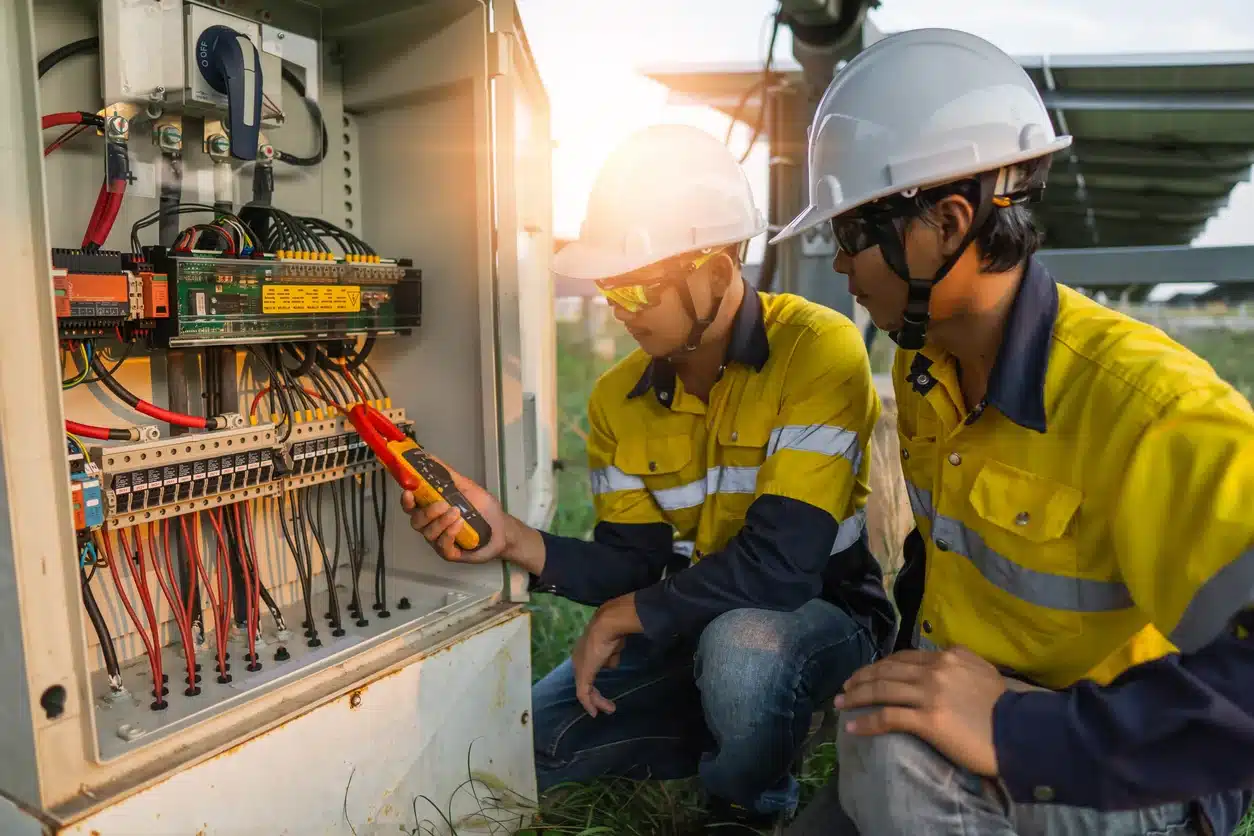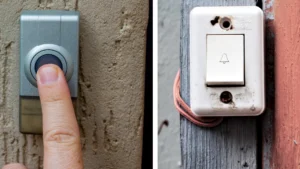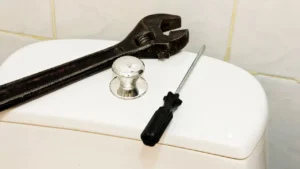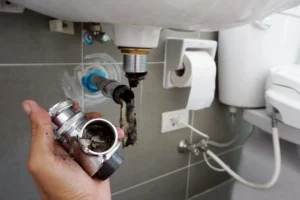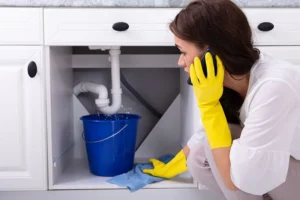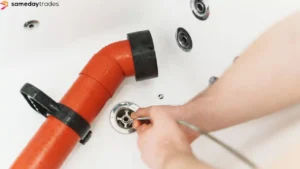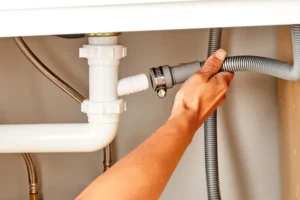Electricity doesn’t come with a user manual, but lucky for us, electricians do. Whether you’re dealing with a flickering light, planning a kitchen renovation, or your entire house just lost power at 2 a.m., there’s a specific type of electrician for that job.
But here’s the catch—not all electricians wear the same hard hat.
In Australia, electricians specialise in different areas depending on the kind of work they do, the level of risk involved, and the licences they hold. Knowing which one to call can save you time, money, and a whole lot of hassle.
In this article, we’ll help you understand the different types of electricians in Australia and when you should hire each one. The idea is simple: no more guessing, no more Googling “electrician near me” at midnight. Just straightforward info you can actually use.
Let’s break it down.
1. Residential Electrician: The Go-To for Everyday Fixes
Let’s start with the basics. A residential electrician is the one you’ll most likely need if you’re dealing with anything in your home—whether it’s installing new light fittings or fixing a faulty power point in your bedroom.
What they do:
- Install ceiling fans, smoke alarms, and power outlets.
- Troubleshoot and repair household wiring problems.
- Upgrade switchboards for modern appliances.
- Help during home renovations and extensions
They’re qualified to work on single-phase systems, which are standard in homes across Australia. If you’re building a new home or renovating, having a good residential electrician on speed dial is a must.
Quick Tip: Always ask if they’re a licenced electrician and if they can issue a compliance certificate for completed work. It’s not just a checkbox—it’s legal protection.
2. Commercial Electrician: For Business and Retail Setups
If you run a shop, restaurant, office, or any kind of commercial property, you’re going to need a commercial electrician.
They understand the heavy load demands of commercial electrical systems and are trained to work in environments where downtime means lost income.
They usually handle:
- Commercial lighting systems and data cabling
- Emergency lighting installation and testing
- Switchboard upgrades for business use
- Scheduled maintenance for compliance
Commercial setups often use three-phase power to handle larger loads. That’s something residential sparkies typically don’t work with.
Did You Know? Electrical companies often have separate teams just for commercial electrician services. These guys know how to work fast without disrupting daily operations.
3. Emergency Electrician: When It Can’t Wait
You know that sudden burning smell near the fuse box? Or when the entire house blacks out and your neighbors’ lights are still on? That’s when you call an emergency electrician.
These professionals are trained to deal with critical, often dangerous, situations. Most work as 24-hour electricians so you can get help even in the dead of night.
Common scenarios where you’ll need them:
- Sudden power outages or sparks
- Overheating circuits or buzzing noise from the panel
- Smoke coming from sockets
- Broken wires or electrical damage after storms
Quick Tip: Save the number of a same-day electrician or 24-hour electrician in your area. Keep it handy like you would an emergency plumber. Emergencies don’t RSVP.
4. Level 2 Electrician: For Heavy-Duty and Metre Work
This is a step above your standard electrician. A level 2 electrician is authorised to connect and disconnect properties to the electricity network. You can’t hire just anyone for this job.
They’re licenced to handle:
- Overhead and underground service lines
- Metre installation, upgrades, or relocation
- Disconnection and reconnection at the mains
- Temporary power supply for construction sites
If you’re getting a pool installed, upgrading to solar, or building a new home from scratch, you may need a level 2 electrician at some point.
Heads Up: Not all electricians are level 2 certified. Make sure to ask before booking if your job involves service lines or metering.
5. Same Day Electrician: Fast Fixes for Minor Headaches
Not everything is an emergency, but sometimes it sure feels like one.
If your circuit breakers keep tripping or the power point in your home office suddenly stopped working, you don’t want to wait for days. That’s when a same-day electrician is worth gold.
They’re perfect for:
- Faulty switches and flickering lights
- Small but urgent fixes in homes or businesses
- Real estate property inspections
- Electrical work during handovers or rental inspections
Most electrical companies now offer express bookings with guaranteed same-day response windows, especially for small repairs that just can’t wait.
Quick Tip: Describe the problem in detail while booking so your electrician comes prepared with the right tools and replacement parts. Saves you both time and a second visit.
6. Industrial Electrician: The Backbone of Australian Manufacturing
These electricians work in high-risk, high-capacity environments like factories, plants, and mines. Their job is complex and often involves dealing with machinery that powers entire operations.
They typically work on:
- Control systems and heavy-duty machinery
- Power distribution for industrial setups
- Troubleshooting for automated production lines
- Electrical upgrades for energy efficiency
Most homeowners will never need an industrial electrician, but if you’re in the manufacturing, logistics, or production industries, they are your best friend on the floor.
Did You Know? Industrial electricians often work with programmable logic controllers (PLCs), making them part electrician, part automation expert.
7. Licenced Electrician: The Non-Negotiable Title
We’ve mentioned this a few times already, and we’ll say it again: always hire a licenced electrician.
A licenced electrician:
- Has completed the required training and apprenticeship
- Carries insurance
- Knows Australian Standards and Safety Codes
- Can issue compliance certificates that are mandatory for many jobs
Unlicensed work is illegal in Australia. It might look cheaper at first, but you’re risking safety, your insurance coverage, and potentially violating local council regulations.
Quick Tip: You can verify if your electrician is licenced through your state’s official website (e.g., NSW Fair Trading, Energy Safe Victoria, etc.). Take five minutes—it’s worth it.
Bonus : How to Choose the Right Electrician for the Job
Alright, now that you know the different types, how do you decide who to hire?
Here’s a mini checklist:
- Residential property? Go for a residential or same-day electrician.
- Business setup or shop? Look for a commercial electrician.
- Need to reconnect mains or install a metre? Level 2 electrician only.
- Late-night outage? Emergency or 24-hour electrician.
- High-risk setup like a factory? Industrial electrician.
Don’t overthink it. Just match the problem to the person, and double-check that they’re licenced and insured.
Tip: A good electrician will happily walk you through what they’re doing, explain the issue, and provide a clear, written quote. If someone gets dodgy or vague—walk away.
Final Thoughts
Electricians in Australia are highly skilled professionals—and they’re not one-size-fits-all. From wiring up your new home office to handling an after-hours blackout, there’s a specialist for every situation.
Understanding the different types of electricians ensures you not only get the job done right but also safely, legally, and efficiently.
So, next time your power flickers or your office needs an upgrade, don’t guess. Call the right electrician for the job—and give yourself one less thing to worry about.

